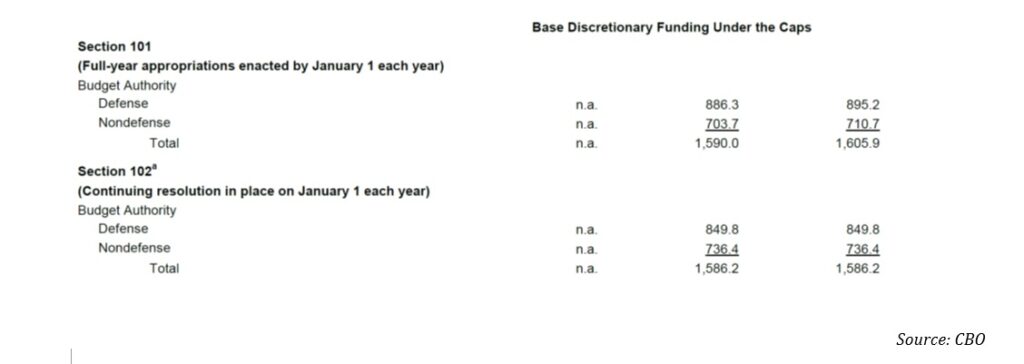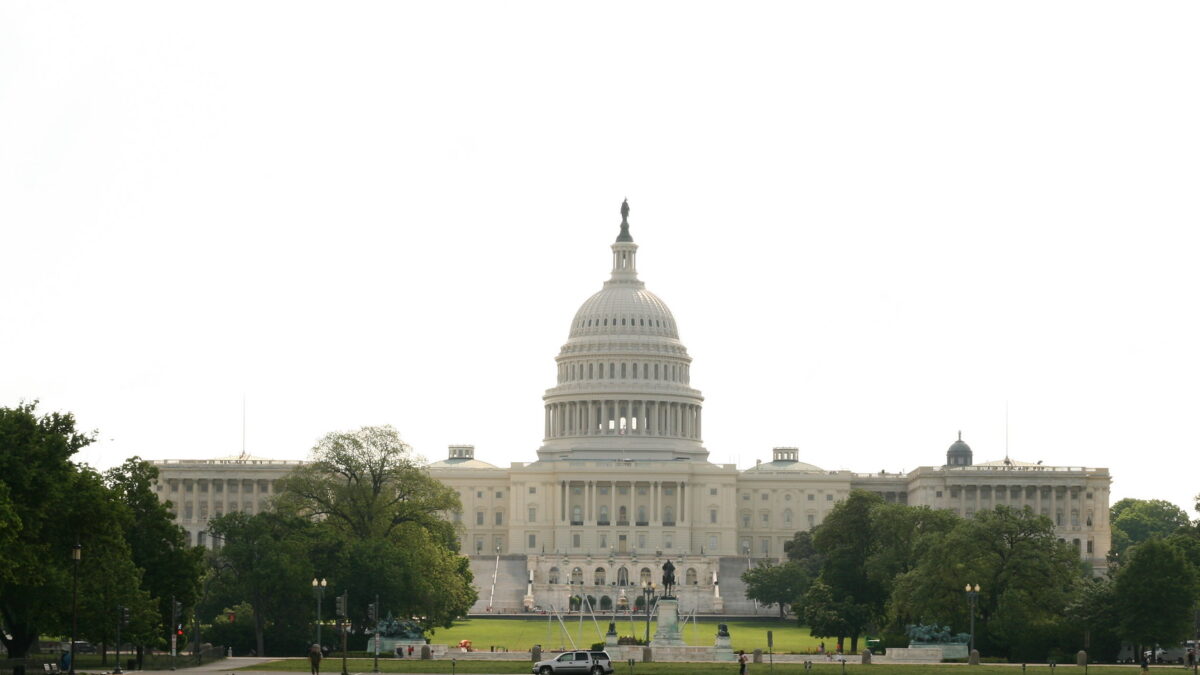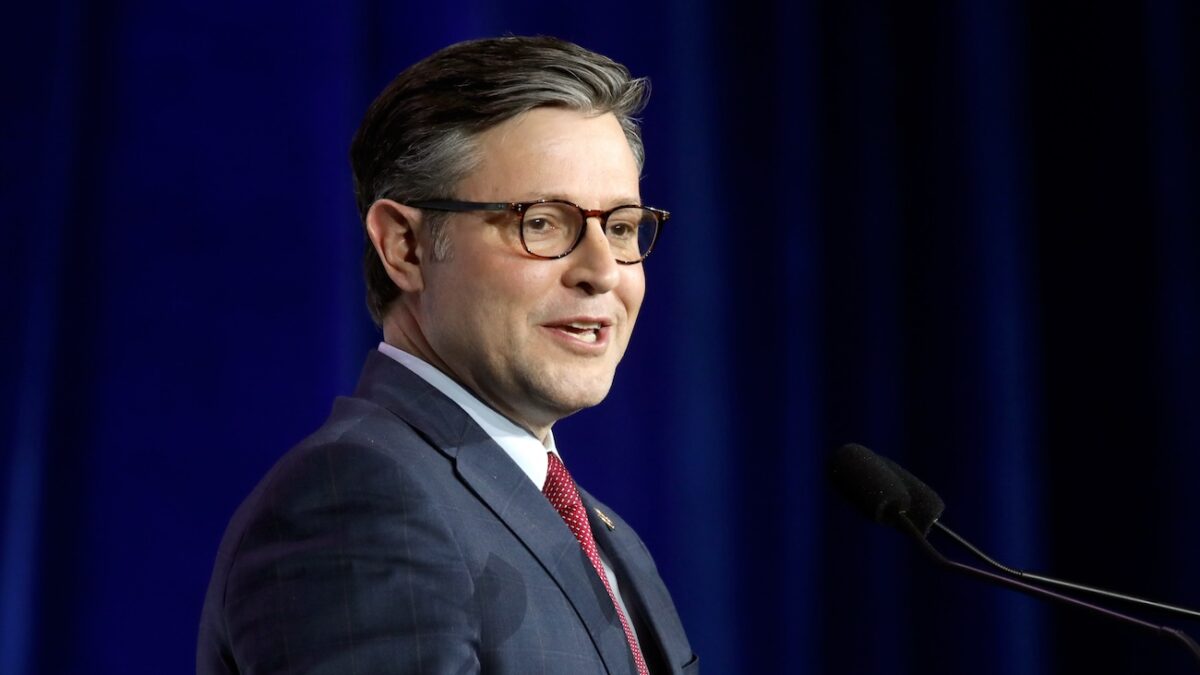Did you enjoy the massive, more than 4,000-page omnibus spending legislation that lawmakers passed days before Christmas last year without having time to read — and which the people who wrote it apparently didn’t have time to read either?
If so, you’ll love the debt limit deal House Speaker Kevin McCarthy, R-Calif., negotiated with the Biden administration. Lawmakers’ claims to the contrary, provisions in the legislation practically guarantee another train wreck omnibus this coming December.
Flawed Reason to Vote for the Bill
On Tuesday, Rep. Thomas Massie, R-Ky., explained why he would vote to advance the agreement in the House Rules Committee later in the day, even as fellow conservatives Rep. Chip Roy, R-Texas, and Rep. Ralph Norman, R-S.C., opposed the measure. Massie cited Section 102 of the bill, which he claimed was a variation of a plan he had previously proposed, as a reason to support the legislation.
While Massie criticized the behind-closed-door elements of the Biden-McCarthy negotiations, he asserted that the process would look different when it came to compiling Congress’s annual spending bills later this summer and fall, because of Section 102 of the debt limit bill:
That’s not the process we’re going to follow when we get to appropriations. And the one redeeming — there are things to dislike and things to like about this bill — but the redeeming portion for me is Section 102, where we all come to the — we’re forced, Senate, House, Republican, Democrat, president, everybody — for us to come to the table and do our job, pass all 12 appropriations bills. If we haven’t at that point, there’ll be a 1 percent cut. [Emphasis mine.]
Based on the context of his quote, Massie believes that Section 102 of the debt limit bill will encourage “regular order” — that is, Congress considering bills through an open process involving committee markups and amendments — and preclude a massive, secretive omnibus spending bill. Unfortunately, he has it entirely backward. Instead of discouraging an omnibus bill, Section 102 will virtually guarantee it.
Doesn’t Prohibit an Omnibus
Section 102 of the debt limit bill — the language covers pages 12-15 of the 99-page measure — would adjust spending caps for either or both of the next two fiscal years if a continuing resolution is in place as of Jan. 1. (A continuing resolution extends the prior year’s spending bill, often as a stopgap measure to allow Congress more time to complete its work on the current year’s 12 spending bills.) For instance, fiscal year 2024 begins this coming Oct. 1, 2023; if a continuing resolution is in place for any portion of the federal government as of Jan. 1, 2024, then the spending caps negotiated in the bill would get adjusted.
In that sense, the bill would help to ensure that Congress passes “each of the [12] full year discretionary appropriation acts,” as the bill states. But Section 102 comes with a huge caveat: It doesn’t prohibit passing those 12 acts in a single omnibus spending bill — as Congress has done far too often in recent years.
To avoid the adjusted spending caps, Congress can either pass the 12 appropriations bills one by one, or they can jam them all into a big, massive package and pass it right before Christmas. Which option do you think Congress will take?
Incentives Favor an Omnibus
The details of Section 102 also explain how the bill’s incentives all point in the direction of an omnibus bill. Take a look at Table 2 of the Congressional Budget Office (CBO) analysis of the legislation, released on Tuesday. If Section 102 gets triggered, spending on defense programs — which Republicans generally support — will decrease, while spending on non-defense programs will actually increase when compared to the underlying spending targets laid out in the debt limit bill.

These incentives will give Republican leadership a perfect excuse to ram through an omnibus bill just before Christmas — otherwise, they will undoubtedly argue, defense and national security interests will suffer from the lower spending levels. (They will of course neglect to point out that the hypothetical damage will occur because of the deal McCarthy cut with Biden.)
As for Democrats, why would they vote for an omnibus when doing nothing and triggering Section 102 would see higher non-defense spending and lower defense spending (both of which most Democrats support) compared to the alternative? For one, they will likely support many of the myriad programs and pork-barrel provisions that get tacked on to an omnibus measure during the closed-door negotiation process.
Game Rigged Against Conservatives
For all the talk about how conservatives won significant concessions from House Republican leaders during the speakership election in January — and they did — an examination of Section 102 emphasizes how McCarthy used the debt limit agreement to rig the process against conservatives in a way that ensures another omnibus train wreck this December.
Lawmakers such as Massie may like the legislation now, but they will be less enthused if (more like when) an omnibus once again comes to the House floor at the end of the year. Thankfully, if they feel at that point in time that McCarthy sold them a bill of goods, they will have tools at their disposal to put their displeasure into action.









